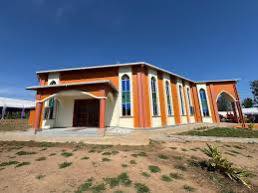
#OutToLunch: Unless we do something, we shall soon be sent to the villages to die
By Denis Jjuuko In the years when HIV/AIDS was wreaking havoc to the country, it was not uncommon to hear that somebody who is sick has been sent from the city to their village. Whenever you heard about it, tears simply rolled down. It was a metaphor for death. Everything has been tried and there is nothing else to do. Chronical illnesses leave many families in poverty and since there was nothing else the family could do, they decided to cut expenses, one of which was the transportation of a dead body. Transporters always charged a fortune. They understood that we may abandon people when they are alive but show immense love to them when dead! And that was before funeral management became a professional service. One could have thought that we had turned a corner from those devastating years of the 1980s and 1990s. That falling sick didn’t mean death but we seem to be slipping back to those dark days. At least two recent cases provide a reminder of where we are. It all started with a senior judge detailing the difficulties she faced when her now late husband was admitted and ended up describing the national referral hospital as “a monument” to the chagrin of its administrators. Before that dust could settle down, the country woke up to a crowd fundraiser for a heart transplant for one of Kampala’s highflyers who unfortunately died before the money could be raised, raising another spotlight on Uganda’s healthcare challenges. The two cases above were public figures hence the publicity they raised. People were bitter that we have neglected our healthcare by outsourcing it to private and foreign hospitals. If you have some money, you run to a private hospital in Kampala. If you have real money, you run to Nairobi or other foreign capitals outside the continent. The majority of Ugandans have no money to run to a private health facility in Kampala or any town in Uganda for that matter. They resort to witchdoctors, fake pastors and prayer to survive. And probably we are about to start seeing families sending back the sick to their villages to die like it was in the late 1980s and 1990s. We many times get obsessed with economic growth and transformation, rolling figures off our tongues. And as the national budget is being read this week, such numbers will be making headlines once again. If we really want to put money in people’s pockets, we must think about social services such as health and education. The cost of healthcare goes beyond what we pay to buy the drugs and pay for consultation fees. There are many lost hours when one falls sick. The sick person and the caretakers are unable to work and are spending money on transport and medicine. Given who we are, others are spending money to check on the sick. It deters economic growth. There is a need to improve our healthcare services as well as promoting health seeking behaviours among the population. If people are healthy, they will be able to attend school or get involved in productive work that leads to economic transformation. Although one of the cases mentioned above involved a heart transplant and many people called for establishment of such facilities, it is probably something that we can do in the future. The doctors who can do heart transplants and such high skilled procedures exist in Uganda but if we are still dying of malaria and such other diseases, our focus should be on primary healthcare services. Lower-level health centres should have well trained personnel who are motivated to work and given the tools they need to diagnose and treat people. The majority of our people seek services at such facilities but many times when you visit, you see despair. From people suffering from simple diseases such as malaria or women getting complications while giving birth. Many times, the health workers are very frustrated. They see their patients die who shouldn’t be dying. When such patients die, we convince ourselves that it was God’s plan. It wasn’t at all. We simply failed at the basics. One of the basics we have failed at as a country is health insurance for all. We know the cost of healthcare. We also know that the benefits of health insurance for all can offset the costs of healthcare but we do nothing about it. Unless we do something about healthcare for all of us, we shall return to the days of being sent to the village to die. The highly connected may laugh at this. But I have heard of some who have been sent back from Nairobi and India to die from here. The writer is a communication and visibility consultant. djjuuko@gmail.com











